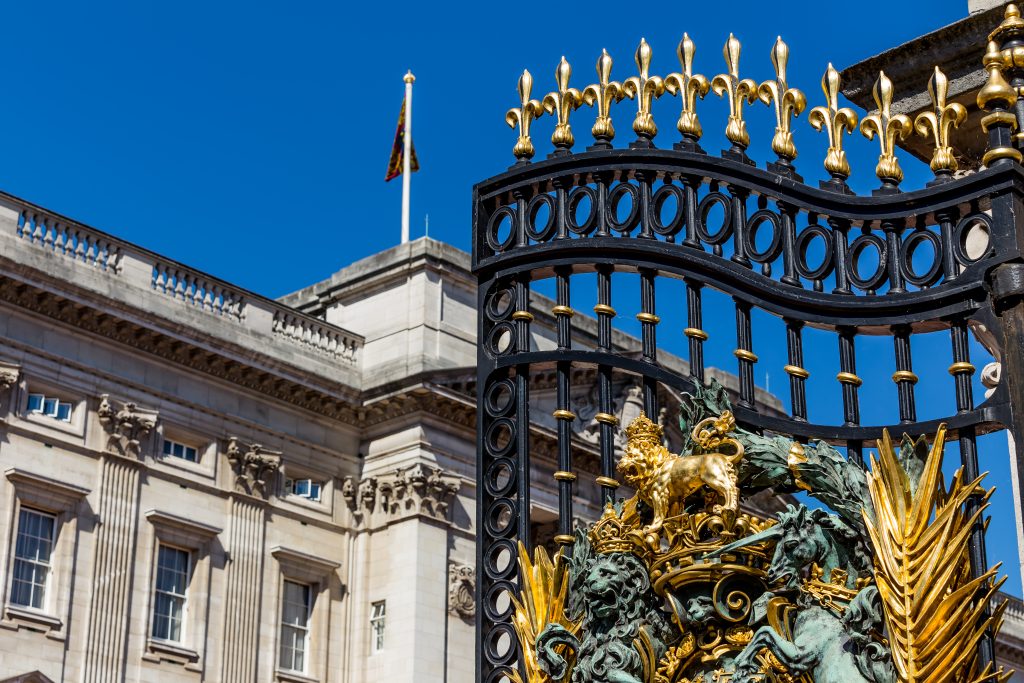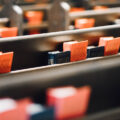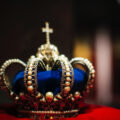Defender of the Faith: HM Queen Elizabeth II
Defender of the Faith: HM Queen Elizabeth II
As the world mourns the death of HM Queen Elizabeth II, this article reflects on how her Majesty’s personal faith shaped her 70-year reign.
HM Queen Elizabeth II, Queen of the United Kingdom, died on the 8th August aged 96. Britain’s longest-serving monarch, Queen Elizabeth II reigned for 70 years and 214 days. During this time she was a calm and steadfast figurehead for the nation through some of the most joyous and turbulent times of the 20th and 21st centuries. The passing of Queen Elizabeth II (henceforth referred to as the Queen) is a momentous event and people from across the UK and the world mourn her death.
The Queen, as is the case with each reigning monarch in the UK, was the supreme governor of the Church of England and Defender of the Faith.[1] Although a largely symbolic role, the Queen took her titles to heart. For the Queen, her position as Defender of the Faith was driven by a deeply held personal faith, evident even before she was crowned. This article will reflect on the Queen’s personal relationship with religion, how it guided her reign, and, perhaps, even shaped the nation’s identity.
The Queen’s personal faith
The Queen dedicated her whole reign to her royal duties and the needs of her subjects were her highest priority.[2] Her Majesty was emotionally reserved in public, not known for sharing much about her private feelings, and rose above day-to-day politics.[3] However, the topic which the Queen spoke candidly about was her deeply held Christian faith. The Queen was a devout believer and “her way of life, conduct and her speeches were testimony to her religious belief and trust in God.”[4]
One of the ways in which the Queen shared her Christian faith with the public was through her Christmas Address, a tradition started by her grandfather King George V. In her first Address in 1952, the Queen requested that the nation pray for her ahead of her coronation, asking for them to “pray for me … that God may give me wisdom and strength to carry out the solemn promises I shall be making, and that I may faithfully serve Him and you, all the days of my life.”[5] Moreover, in her 2014 Address, the Queen spoke of how, for her, “the life of Jesus Christ is an inspiration and an anchor in my life” and that his example taught the Queen “to seek to respect and value all people of whatever faith or none.”[6]
Some of those who spent time with the Queen have reflected on how apparent her personal faith was to her life and role as monarch. One of the royal chaplains who spent a weekend at Balmoral Castle confirmed that the conversations he had with the Queen revealed her “to be a thoughtful, devout Christian.”[7] He added that “as a humble Christian she took her earthly vocation seriously, placing the needs of the office and of the people she ruled before her own.”[8]
Personal faith and the public sphere
Interestingly, while the Queen’s personal faith could not be disputed, for the first 50 years of her reign, the Queen rarely spoke in public about her faith. However in 2002, the Queen endured a painful year of personal losses with the deaths of her sister, Princess Margaret, and the Queen Mother. While these losses are not the only reason for the change in her public expressions of faith, Stephen Bates, a former royal correspondent, believes that following the deaths she expressed “more of what she feels. I think this openness about her own commitment is part of it as well.”[9] In her annual Christmas address that year, she spoke of how much she relied on her own faith “to guide me through the good times and the bad.”[10]
Through her reign, and often through the medium of her Christmas Addresses, the Queen “articulated the importance of her faith and recommended it to her subjects.”[11] In particular, in her Christmas Addresses, the Queen continued to speak about Christ and the importance of his teachings to all. In her 2016 Address, she said that “Christ’s example helps me see the value of doing small things with great love, whoever does them and whatever they themselves believe.”[12] While her own faith was unquestionably a Christian faith, in 2012, the Queen attended a multifaith reception hosted by the Archbishop of Canterbury and spoke of how:
“Faith plays a key role in the identity of millions of people, providing not only a system of belief but also a sense of belonging. It can act as a spur for social action. Indeed, religious groups … remind us of the responsibilities we have beyond ourselves.”[13]
This statement exemplifies how the Queen believed passionately in the importance of all faiths and how they can positively shape one’s experience of, and impact on, the world.
Reflecting on the Queen’s faith and its legacy
The influence of the Queen’s personal faith and support of religion was not to be underestimated. For example, in 2017 the BBC admitted that it had been reflecting a secular version of the UK and needed to do more to highlight the faith of the four nations. According to Dr Rowan Williams, former archbishop of Canterbury, the Queen was bridging the divide. “I think that as there has been less overt Christian ‘messaging’ in the general cultural environment, the Queen has deliberately decided to fill the gap,” he said.[14]
The Queen’s decision to ‘fill the gap’ had a hugely significant impact on the UK’s sense of identity. By leading as an example of compassion, inclusivity, and love, the Queen helped to provide a sense of unity across the four nations. Religious leaders representing all faiths across the UK have reflected on the Queen’s impact, including the Archbishop of Canterbury Justin Welby who has said that the late Queen felt like a “near-eternal point of stability” for the nation.[15] Moreover, Chief Rabbi Ephraim Mirvis said that the Queen was a “global role model for distinguished leadership and selfless devotion to society”[16] and Imam Monawar Hussain, former High Sheriff, said that the Queen was a “gift from God to this nation.”[17]
In conclusion, it is clear that the Queen’s personal faith was the driving force throughout her 70-year reign and helped to establish her as a monarch guided by compassion, care, and hope. As her eldest son becomes King Charles III, it will be interesting to see whether a personal faith will equally influence his reign.
Want to learn more about similar topics? Go to the EARS Dashboard.
Sources
[1] A Lifetime with the Queen: The Defender of the Faith
[2] There is one word that sums up Queen Elizabeth’s long reign | The Independent
[3] The Quiet Faith of Queen Elizabeth II | Carl R. Trueman | First Things
[4] A devout believer, the Queen took her faith seriously | The Independent
[5] Queen Elizabeth’s faith – Christianity
[6] Queen Elizabeth on her relationship with Christ
[7] The Quiet Faith of Queen Elizabeth II | Carl R. Trueman | First Things
[8] The Quiet Faith of Queen Elizabeth II | Carl R. Trueman | First Things
[9] How the Queen – the ‘last Christian monarch’ – has made faith her message | Queen Elizabeth II | The Guardian
[10] Died: Queen Elizabeth II, British Monarch Who Put Her Trust in God | News & Reporting | Christianity Today
[11] Died: Queen Elizabeth II, British Monarch Who Put Her Trust in God | News & Reporting | Christianity Today
[12] How the Queen – the ‘last Christian monarch’ – has made faith her message | Queen Elizabeth II | The Guardian
[13] Died: Queen Elizabeth II, British Monarch Who Put Her Trust in God | News & Reporting | Christianity Today
[14] How the Queen – the ‘last Christian monarch’ – has made faith her message | Queen Elizabeth II | The Guardian
[15] Death of Queen Elizabeth II: Archbishop of Canterbury pays tribute to late monarch in special cathedral service
[16] Tributes to the Queen flood in from Jewish community
[17] Former High Sheriff Monawar Hussain says Queen was ‘gift from God’ | Oxford Mail






